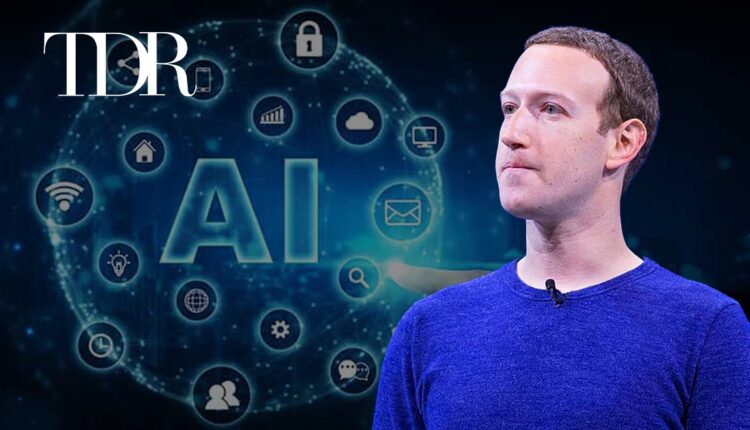
Mark Zuckerberg Champions Open Source AI
The TDR Three Key Takeaways on Mark Zuckerberg Champions Open Source AI to Drive Innovation and Security
- Advocating for Open Source: Mark Zuckerberg’s open letter emphasizes the importance of open-source AI development, arguing that it promotes prosperity and safety by democratizing access to technology.
- National Security Concerns: Zuckerberg highlights the unrealistic nature of keeping AI technology secret amidst espionage threats, particularly from China, advocating that open source can mitigate these risks.
- Regulatory Implications: As the Biden administration considers new AI regulations, Zuckerberg’s stance underscores the need for policies that balance innovation with security, ensuring broad access to AI advancements.
Mark Zuckerberg has taken a firm stance on the importance of open-source AI development. In an open letter, the CEO of Meta argued that sharing AI technology with the global developer community is crucial for fostering innovation and ensuring global prosperity and safety.
For years, the tech industry has debated whether to keep the details of their computer code secret or share it openly. This debate has become more pressing with the rapid development of AI and growing concerns about national security. Zuckerberg’s letter reinforces Meta’s commitment to open-source AI, a stance he acknowledges carries risks but also significant benefits.
Zuckerberg pointed out that it is unrealistic to believe a few companies can keep their AI technology secret. He noted that Silicon Valley has long been a target for espionage, particularly by countries like China. He argued that governments should support open source to enhance global prosperity and safety. “Clamping down on sharing AI research would simply stifle American innovation,” Zuckerberg stated.
Meta has backed up this philosophy by releasing the latest and most powerful version of its AI algorithm, LLaMA. Additionally, Meta AI, the company’s AI-powered smart assistant, now supports seven more languages, including Hindi, French, and Spanish. This move aims to democratize access to AI tools and enable broader global participation in AI development.
Zuckerberg’s renewed call for open-source AI comes at a pivotal time as the Biden administration considers how to regulate this rapidly evolving technology. Last year, President Biden issued an executive order calling for more safeguards around AI, particularly to combat the spread of misinformation by AI-powered chatbots and video programs. In April, the Commerce Department sought feedback on draft proposals for AI regulation.
Companies like OpenAI, Microsoft, and Google have argued that AI could be dangerous and is developing so quickly that it should be controlled by the experts who understand it best. Critics worry that AI developed in the United States could be used by countries like China to compete with or harm Americans. However, Zuckerberg and others believe that open-source AI allows for greater transparency and collaboration, which can help identify and solve problems more effectively.
“Open source will ensure that more people around the world have access to the benefits and opportunities of AI,” Zuckerberg said. “It will prevent power from being concentrated in the hands of a few companies and ensure that technology can be deployed more evenly and safely across society.”
Despite his advocacy for open source, Zuckerberg admits that Meta’s motives aren’t purely altruistic. The wider adoption of Meta’s open-source tools can lead to industry-wide standardization of its products, potentially increasing Meta’s influence. Additionally, Zuckerberg does not want Meta to be dependent on the products of other companies, such as Apple and Google, to reach customers.
“We must ensure that we always have access to the best technology and that we’re not locked into a competitor’s closed ecosystem where they can restrict what we build,” he added.
Zuckerberg’s stance on open-source AI highlights the complex interplay between innovation, security, and regulatory oversight. As the Biden administration deliberates on how to manage the risks and benefits of AI, Zuckerberg’s perspective provides a strong argument for the potential advantages of open-source development.



